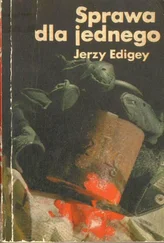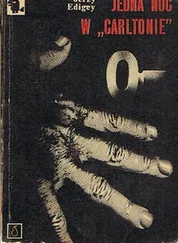But for that fraction of a second, as they looked at each other, they managed to ask themselves silently: Which one? Which one of them would soon die? They both knew the secret alphabets of death. The lot fell to Mila. She was a large, stout woman, and she had always had heart troubles. In half a year she would begin to feel sick. Not so very sick — she wouldn’t even lose consciousness — but still, sick enough that the ambulance would come, they would take her to the hospital, and basically no one knew what would come next. The kitchen was full of people, everyone was waiting for news, uncanny Pospiszil was calmly reckoning whether Mama — in my parts, to this day, men have the fatal habit of calling their wives “Mamas”—would return home for the holidays. Of course she would return, what do you mean for the holidays, what’s the date today? The tenth of December! What do you mean for the holidays! Mama will return well before the holidays! And even if! Even if, God forbid, there were some complications, because a person has to be prepared for everything, even so, they will certainly discharge her just in time for the holidays! They will discharge her for the holidays. They always discharge almost everybody for the holidays. How could this be: the holidays without Mama?
And here, for a good hour already, life without Mama had been going on. They couldn’t get through on the telephone from the hospital, what was the hurry with this news after all. Finally, Grandma will take the telephone call, and right away — despair, sudden lament, the first steps of the funeral dance. Mama has died! Mama has died! She was with us even yesterday, and today she is gone! Grandma will run in from the hallway, where the telephone on the wall, fastened to a special pedestal made of black metal, was now like an altar of evil. She will glide with a quick but at the same time solemn step, she will rush to uncanny Pospiszil, grasp him by the head, embrace him, and shout like in the circus: Mama has died! Mama has died!
The sudden expressions of despair were the most difficult to understand. After all, she well knew at whom the shot under the kitchen stove had been aimed. So what shock are we talking about? What surprise? She knew that it was about Mila, not about her.
This didn’t happen in my sleep. It was in the early morning of a certain winter day. All of Wisła was buried in snow up to the rooftops, and it must have been twenty below zero. Somebody was sitting then on the round stool at the sewing machine. She had recently gotten up, was walking about the room and braiding the plait that she never cut, and she wasn’t afraid, and she wasn’t ashamed, because she sensed that that someone could be a messanger — frozen, dusty, dead tired, but from over there. Perhaps even the same one who once had visited Abraham, or the one who had dissuaded Joseph from leaving Mary, or the one we sang about in the Christmas carol: “On earth are the earthly, in heaven, the angels.” You couldn’t see his wings, but it all fit. Can you see birds’ wings when they sit on branches? Has anyone ever seen a sparrow sitting with its wings spread? Or a titmouse? Or a blackbird? Birds spread their wings in flight; it must be the same with angels. True, on the lithograph that was hanging over the bed you could see the spread wings growing out of the angel’s back, but every time she looked at that picture, the thought came to her that the picture was painted nicely, but that the painter had probably never seen even a partridge in the grass, to say nothing of an angel. The one who was sitting on the round stool at the sewing machine must have had his wings folded. An angel with folded wings. A strange expression, but she liked it a lot. And he had just said — the stranger with the folded wings — that she would still, for many years, see signs and hear voices. It flitted through her mind to ask about Gustaw. Just how was he doing? Had his cracked skull grown back together? Did he remember her? But she let it go, since this might displease him. She has been with her second husband for a long time now, three children with him, grandchildren, and there she goes asking about the other one. God didn’t take him so that she could long for him. She didn’t ask.
Grandma Pech outwitted death by her eternal readiness for it. That was how she lived to be ninety. For as long as I could remember, she had been saying that it was time to leave this world, that she had just one desire, to fall asleep in the evening and not wake up in the morning, and she always wore black. Even when she wasn’t entirely in black, she always wore something funereal, even if it was only a scarf with black roses. In other words, she was ready for death every day, she had the angel’s assurance that she would live to see a thing or two, she had been forewarned about God’s decisions. She was doubly, or perhaps even repeatedly, fortified; she had been expecting Mila’s death for half a year. But in that case, what was the reason for her race from the hallway to the kitchen, feverish and stately, like an up-tempo cortège? Why, and for whom, that grabbing of uncanny Pospiszil by his gray mane? Why, and for whom, those theatrics?
For the Lord God. For half a year, day after day, Grandma Pech had awaited Mila’s death with a heavy heart, but also for half a year she had been gearing up for her performance on the occasion of that death. She couldn’t foresee all the circumstances, but it turned out almost ideally. Grandma Pech was the Lord God’s dancer. She didn’t have the slightest doubt that He never took His eye off her, and that in important moments He scrutinized her carefully. Her faith was pure and steadfast, but it plunged her into an aesthetic of despair, because it seemed to her that the Lord God, the angels, and, in general, all the inhabitants of heaven were the audience before which she was performing. She did her best, but she didn’t know the duplicitous art of solemn gestures. She couldn’t even feign sorrow over someone’s death very well. And when she thought about herself, she went numb with fear. Just how would that be? Through one’s whole life, a person hadn’t been anywhere, hadn’t traveled, hadn’t met anyone. A person hadn’t even been to Warsaw, and now you have to exchange a few words with Lord Jesus, greet the archangels from up close. God! How will this be? My Grandma Zuzanna, née Trzmielowska, primo voto Branna, secundo voto Pech, wasn’t afraid of death — she was afraid of leaving Wisła.
II
She died in long drawn-out agonies. I saw her for the last time two weeks before her death. For the previous nine years, ever since Grandpa Pech had died, she had lived alone. For the last year, she lay in bed in the small room. I sat on the round stool at the sewing machine. She told stories about the church fair, about gingerbread, and about the taste of freshly pickled cucumbers. I realized that she was talking about the taste of cucumbers from the year 1912. Twenty years later she fell in love with the young butcher Gustaw Branny. A dark, almost indecipherable photo from their wedding party was hanging over the little chess table. Today it is easy to say that clouds were gathering over the young couple. If you stare at the background, you can see more than clouds, and more than the black trunks of pine trees — you can see corpse-white lightning bolts slashing through the darkness.
To the left of the groom sits his sister Mila, with uncanny Pospiszil. Pospiszil’s uncanniness, in my mind from back then, was based on three circumstances. First: he had a twin brother. Second: a year after my aunt’s death, the devils carted him off to hell, and he cursed horribly, horribly. Third: he was an enthusiastic phillumenist.
He showed me his collection once. Oh, the varieties and origins of matchbox covers he had there! Egypt, The Congo, Bechuana, Tanganyika, Laos, Oran, Siam — God knows what else. Everything the same size, poor pictures, wretched paper, zero serration. In those days, I collected stamps, and Pospiszil’s phillumenalia made a gloomy impression. It seemed to me that he, too, really wished to collect stamps, but, as some sort of punishment, he was only allowed this pathetic stuff. Or that those were stamps, but that the devil cut the edges at night and spilled acid on them, which made the colors fade, the paper get thin, and the glue come off the back. Pospiszil was amazingly proud of his collection. He presented it with the superiority of the magician initiated in who knows what sort of arcana. With the proficiency of the old pedant (before the war he had taught at the conservatory), he tested me to see whether I was reacting with the proper humility, and I felt ashamed of him with the terrible shame of the child who is ashamed of adults. To make matters worse, the Pospiszils’ house in Wierchy was huge and unfurnished. All the rooms were painted yellow, and there was not even a stool in a single one. In the living room, there was a piano covered with a shiny violet dust sheet — and that was that. Maybe they lived on the second floor, maybe they were remodeling just then, painting, changing the stoves — the explanation wouldn’t be complicated, but in my mind there remained the yellow light of the walls, the empty rooms, and Pospiszil showing me, with pomp and solemnity, the most pathetic little scraps of paper in the world.
Читать дальше












